What is mulch?
A mulch is a layer of material applied to the surface of the soil. (Wikipedia)
You can use it to retain moisture in the soil, suppress weeds, keep the soil cool, and make the garden bed look more attractive. Organic mulches also help improve the soil’s fertility, as they decompose – (The pruce).
Read also: Compost: Composting Steps, Materials and Importance
Types of Mulch
There are organic and inorganic mulches. Your choice of a mulch will depend on a number of factors. Terrain, purpose, availability of materials among others.
1. Composted animal manure (Organic)
A compost of nutrient-rich animal manure is the best mulch for vegetables. However, make sure it decomposes well before you apply it to your garden. Fresh manure will burn your plant. Also, avoid dog, cat, and pig manures because they can contain disease-causing organisms.
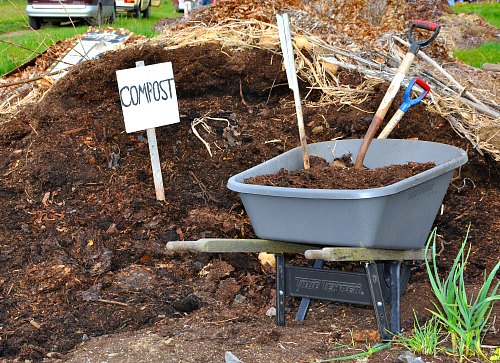
Read also: How to Carry Out Land Preparation Under No-till Agriculture
2. Grass Clippings or Shredded Leaves (Organic)
You can make your own organic mulch from grass clippings and shredded leaves. You can use them to mulch garden beds and around trees and shrubs. Do not apply in thick layers and also do not use clippings from lawns that have been treated with herbicides and insecticides.
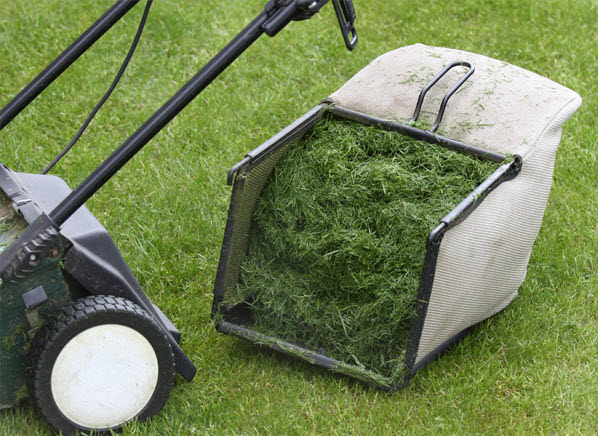
3. Cocoa Chips (Organic)
Cocoa chips have a rich color and a pleasant scent. They are easy to handle and very appropriate for all planting areas. Cocoa chips decompose quickly. Cocoa mulch, like chocolate and its byproducts, can be fatal to animals if consumed. Take caution and do not apply where there are pets or wildlife.
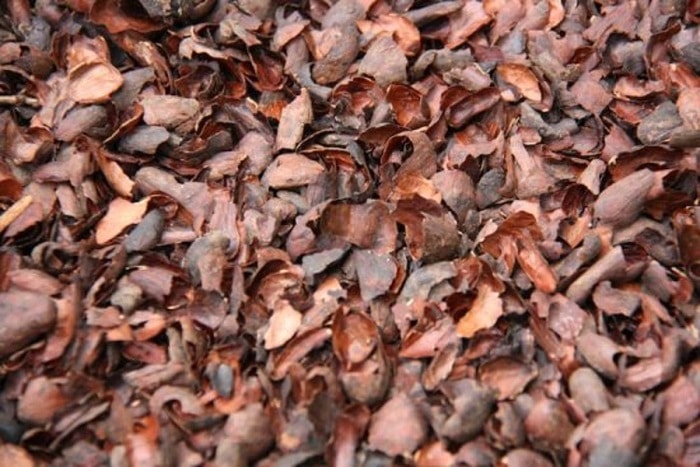
4. Wood Chips or Bark (Organic)
You can use both hardwood and softwood chips or wood bark as mulch materials. Use such mulch types around trees and shrubs. It is best to use them because it leaches large amounts of nitrogen from the soil as it decomposes.
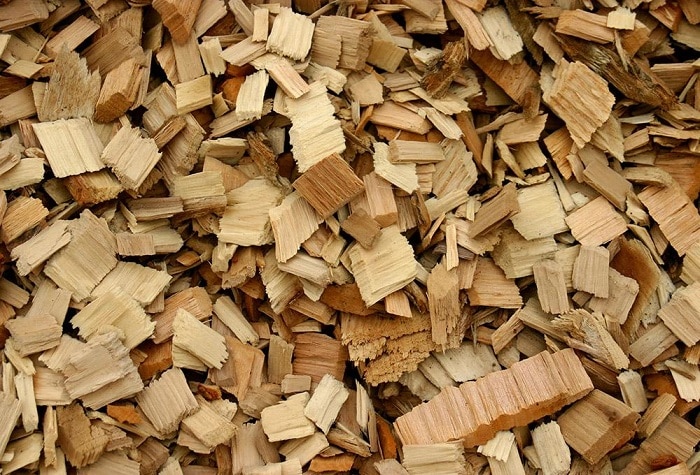
Read also: Organic Farming: Types, Principles, Methods and Importance
5. Straw (Organic)
Straw from most grasses is ideal for use as mulches. You must acquire your straw at the stage when the grass has not developed seeds or you may also introduce the challenge of weeds. Avoid hay. It may contain seeds.
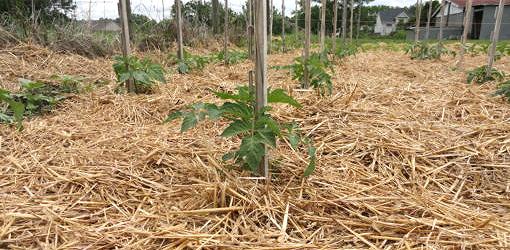
6. Newspaper or Cardboard (Organic)
Among the mulch types, you can also use shredded black and white newspaper or natural cardboard that is not dyed. This will effectively suppress weeds. First, apply two or three layers of newspaper at a time and cover with a heavier organic material such as leaves or grass clipping to hold the newspapers in place. Do not mix coloured newspaper or coated cardboard. They do not decompose readily and may expose your garden to toxic dyes.
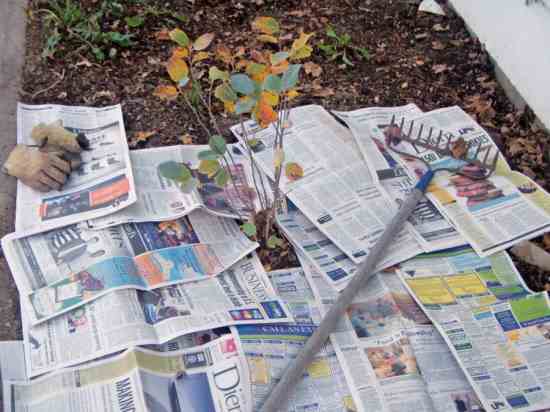
7. Rock or Crusher Dust (Inorganic)
These materials and similar ones are best as mulch for walkways and paths. They will not break down or decompose. They are also cheap. However, do not use it around plants. They do not retain water effectively. They also heat up easily and can burn the plant’s roots.

Read also: 6 Basic Soil Problems and Recommended Solutions in Agriculture
8. Landscape Plastic or Fabric (Inorganic)
Plastic polyethylene is ideal as a weed killer in the short term. This is so because it is impermeable i.e. water and other nutrients cannot pass through. Install an irrigation system under the plants or you may have to water your plants manually. Replace the plastic at the end of each growing season.
The landscape fabric is more expensive but very effective in suppressing weeds. This material allows air and water to pass through. Use landscape fabric with a layer of organic mulch e.g. wood chips, on top.
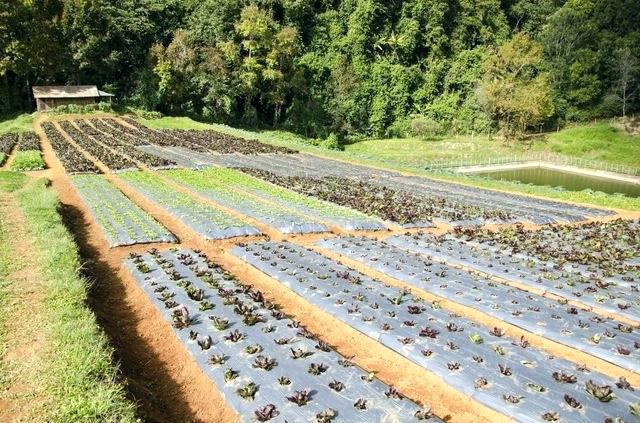
9. Rubber (Inorganic)
Rubber mulch is made from recycled, pulverized tires. It is durable and inexpensive. This is good for high-traffic areas like playgrounds. It does not decompose and toxins in the rubber can leach into the soil.
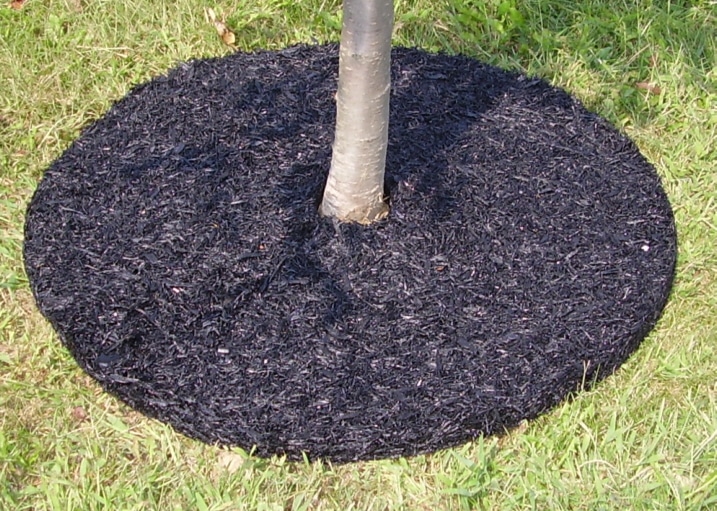
Importance of Mulch
- Mulch helps to balance soil temperatures.
- It retains water helping to keep the roots moist.
- Mulch suppresses weeds’ growth to prevent root competition.
- Mulch prevents soil compaction as it decomposes and adds to the soil.
- It also reduces water runoff and erosion of the soil by wind or water.
- When soil temperatures are balanced, it promotes the activities of soil organisms and so improves the soil.
- Some mulch especially organic decays release soil nutrients into the soil.
- Mulching helps to make good use of materials that may be “waste”.
Read also: 10 Benefits of Cover Crops to Soil Improvement and Cropping
Recommended materials and rates for mulching
We ask that, as much as you can, use organic materials instead of inorganic materials. Compost is the best mulch material.
We advise that you apply mulch at a depth of 2 to 4 inches. That is about the length of your middle finger. Heaping mulch at the base of plants can lead to insect and rodent infestation. It can also build-up of excess moisture in the root zone and cause root rot.
References:
Mulch – wikipedia.org
The Importance of Mulching – arborday.org
What is Mulch? – thespruce.com
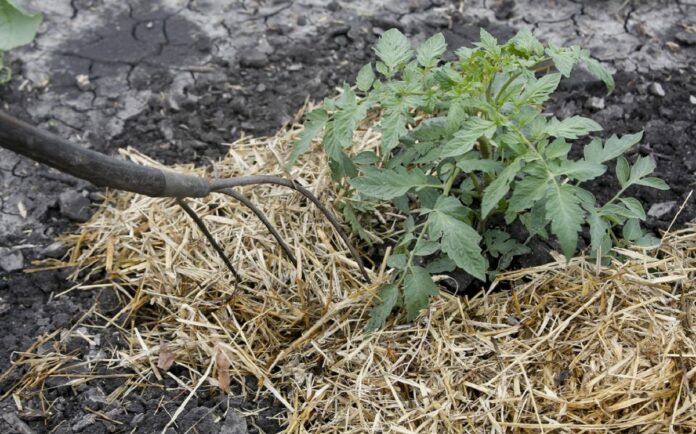


Need for scientific test at WCK Coast 800 kilo Orgnaic Green dry Biomass !per mid April contact : Paul Ketterer +254 790 408 314
mix based on Rice husk 25% Marubaina 25% Straw 25% coco-peat 20% Ash 5%
Nice work Madam Theresa.
Thank you for reading.
Wow, you really did justice to mulch. Seems my education has been biased on just the organic mulch than the inorganic.
Good job
Keep it up and update us more.
Thank you soo much for reading. Kindly hit the subscribe button to get other updates.
Good article. The use of compost us now being understood by farmers. They need more education on this topic.
Thank you soo much for reading and thanks for the suggestion.